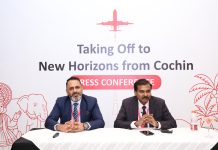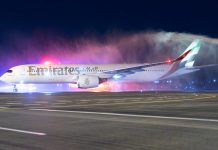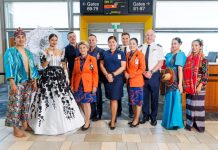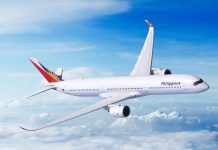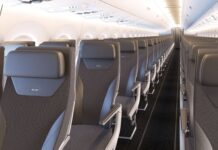 The International Air Transport Association (IATA) launched the Integrated Sustainability Program (ISP) at the IATA World Sustainability Symposium (WSS) in Hong Kong. ISP is a certification program offering airlines a comprehensive sustainability management and assessment framework. It is designed specifically for airlines and built upon the successful IATA Environmental Assessment (IEnvA).
The International Air Transport Association (IATA) launched the Integrated Sustainability Program (ISP) at the IATA World Sustainability Symposium (WSS) in Hong Kong. ISP is a certification program offering airlines a comprehensive sustainability management and assessment framework. It is designed specifically for airlines and built upon the successful IATA Environmental Assessment (IEnvA).
Along with certification, the program includes training, consulting, assessments, guidance, and tools in four critical modules: (1) environmental management, (2) sustainable procurement, (3) social responsibility and (4) sustainability performance. ISP certifications and modules can be pursued individually or as a fully integrated sustainability program. Certifications are subject to a recurring 2-year cycle of independent assessments.
“The comprehensive ISP certification program validates that an airline is managing its sustainability efforts at the highest level and in the broadest context. It does this by integrating the monitoring of environmental, social, and governance measures and providing all stakeholders, regulators, and customers with a transparent view of the progress. This comes with the added value of being designed for airlines’ specific needs, making ISP a practical framework to inform decision-making while ensuring that airlines’ efforts are aligned with global best practices,” said Marie Owens Thomsen, IATA’s Senior Vice President for Sustainability and Chief Economist.
The four ISP modules include:
- Environmental Management: IEnvA is now a fully integrated program within the ISP. By incorporating ISO14001:2015 principles, IEnvA enables organizations to assess their environmental footprint systematically, manage compliance obligations, and develop targeted management plans for emissions, waste, water, noise, biodiversity, and pollution. Airlines already certified under IEnvA will be incorporated under the ISP framework, with the option to take up additional modules/certifications.
- Sustainable Procurement: For the first time, the ISP brings ISO20400:2017-aligned sustainable procurement standards to aviation. This empowers organizations to evaluate and improve the sustainability of their supply chains and the goods and services they buy across environmental, social, and governance dimensions.
- Social Responsibility: The ISP integrates ISO26000:2010, the UN Guiding Principles on Business and Human Rights, and OECD guidelines into a certifiable framework to help organizations map social risks and opportunities. These encompass establishing customer protection and service, human rights due diligence processes, driving continuous improvement in community engagement and investment, for example.
- Sustainability Performance: This program allows airlines to measure and monitor their environmental, social, and governance performance. Following the new ISP framework will support transparent reporting and informed decision-making in line with evolving organizational, regulatory, customer and investor ESG ambitions and requirements.
At the WSS in Hong Kong, it was also announced that Air New Zealand and EVA Air are the first two carriers to receive the Sustainable Procurement certification under the ISP.
“As New Zealand’s national airline, we’ve always had a responsibility to help our people and communities thrive. For Air New Zealand, sustainable procurement means building on the collective strength and innovation of our supplier network, and working together to create better outcomes for people and the planet. By backing IATA’s new ISP, we want to play our part to help lift standards across aviation, and demonstrate that doing what’s right is about doing good business,” said Kiri Hannifin, Air New Zealand Chief Sustainability and Corporate Affairs Officer.
“Earning this certification marks a key milestone in EVA Air’s sustainability journey, reflecting our commitment to integrating sustainability into procurement and collaborating with partners to build a more resilient supply chain,” said Jason Liu, Chief Sustainability Officer at EVA Air.
ISP will evolve over time as IATA continues to work with a broad spectrum of industry participants and stakeholders to ensure that industry standards, guidance, and certifications remain practical and impactful. At present, ISP is only available to airlines. However, it will evolve to ground handlers, cargo handlers, airports, MROs, and caterers.
Airbus and Cathay partner to scale SAF adoption
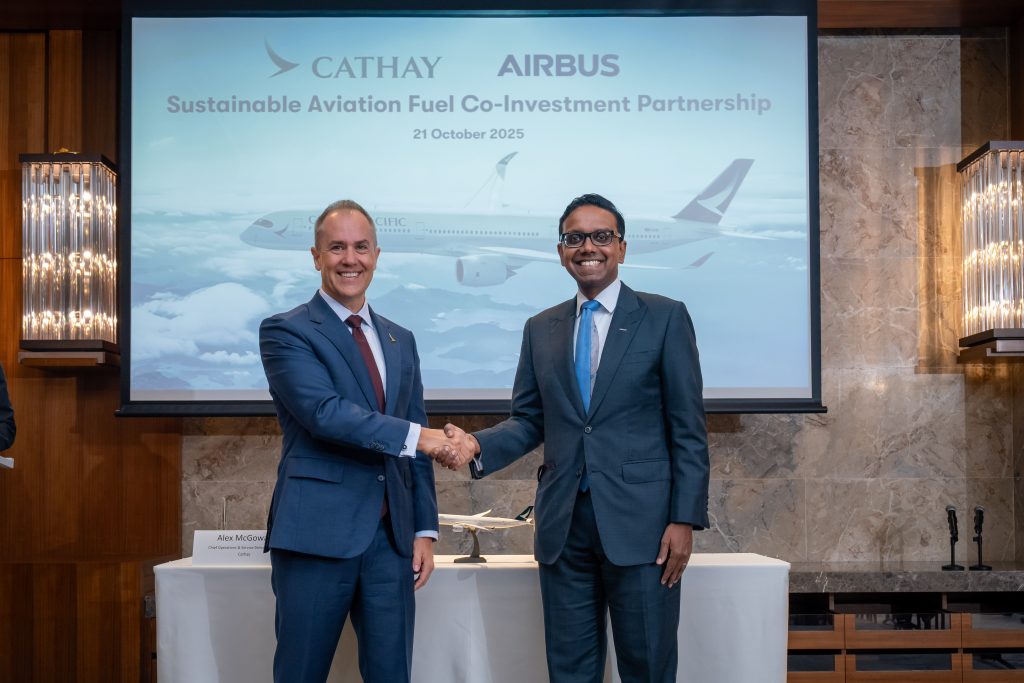
Airbus and the Cathay Group have announced a joint investment of up to US$70 million to accelerate the development of sustainable aviation fuel (SAF) production in Asia and globally. The agreement was announced in Hong Kong on the sidelines of the IATA World Sustainability Symposium at a ceremony hosted by Cathay Chief Operations and Service Delivery Officer Alex McGowan and Airbus President Asia-Pacific Anand Stanley. Under the terms of the partnership, the two companies will collaborate to identify, evaluate and invest in projects that support the scaling of SAF production towards 2030 and beyond. Projects will be assessed based on their commercial viability, technology maturity, and potential for long-term offtake.
Scaling SAF requires deep collaboration across the value chain, including from policymakers and investors to SAF producers and customers. This co-investment agreement reflects the spirit of partnership with Airbus and Cathay teaming up to accelerate production capability for more meaningful impact.
“SAF remains the most important lever for Cathay and the wider aviation industry to drive toward our decarbonisation goals,” said Alex McGowan, Chief Operations & Service Delivery Officer, Cathay. “This co-investment partnership with Airbus underscores our commitment to building a stronger, more scalable SAF industry. It complements our broader strategy of investing in the technologies and production capacity needed for the future, including our recent investment in the oneworld BEV SAF Fund. Meanwhile we are expanding SAF usage today through partnerships with like-minded organisations.”
“This agreement reflects the shared commitment of Airbus and Cathay to make a real difference,” said Anand Stanley, President Asia Pacific, Airbus. “The production and distribution of affordable SAF at scale requires an unprecedented cross-sectoral approach. Our partnership with Cathay is a concrete example of how we catalyse production in the most suitable locations to serve our customers.”
The joint commitment also includes collaboration to advocate for supportive SAF policies on both the supply and demand side across Asia. With the region’s strong potential in feedstock supply, production capacity, and its vibrant aviation market, Airbus and Cathay aim to leverage their global experience to help shape policies that make SAF more accessible and affordable in this part of the world. Airbus and Cathay have a long-standing partnership dating back to 1989, when the airline signed its first order for Airbus aircraft. Today, the Cathay Group operates 86 Airbus aircraft with over 70 more on order for future delivery.







